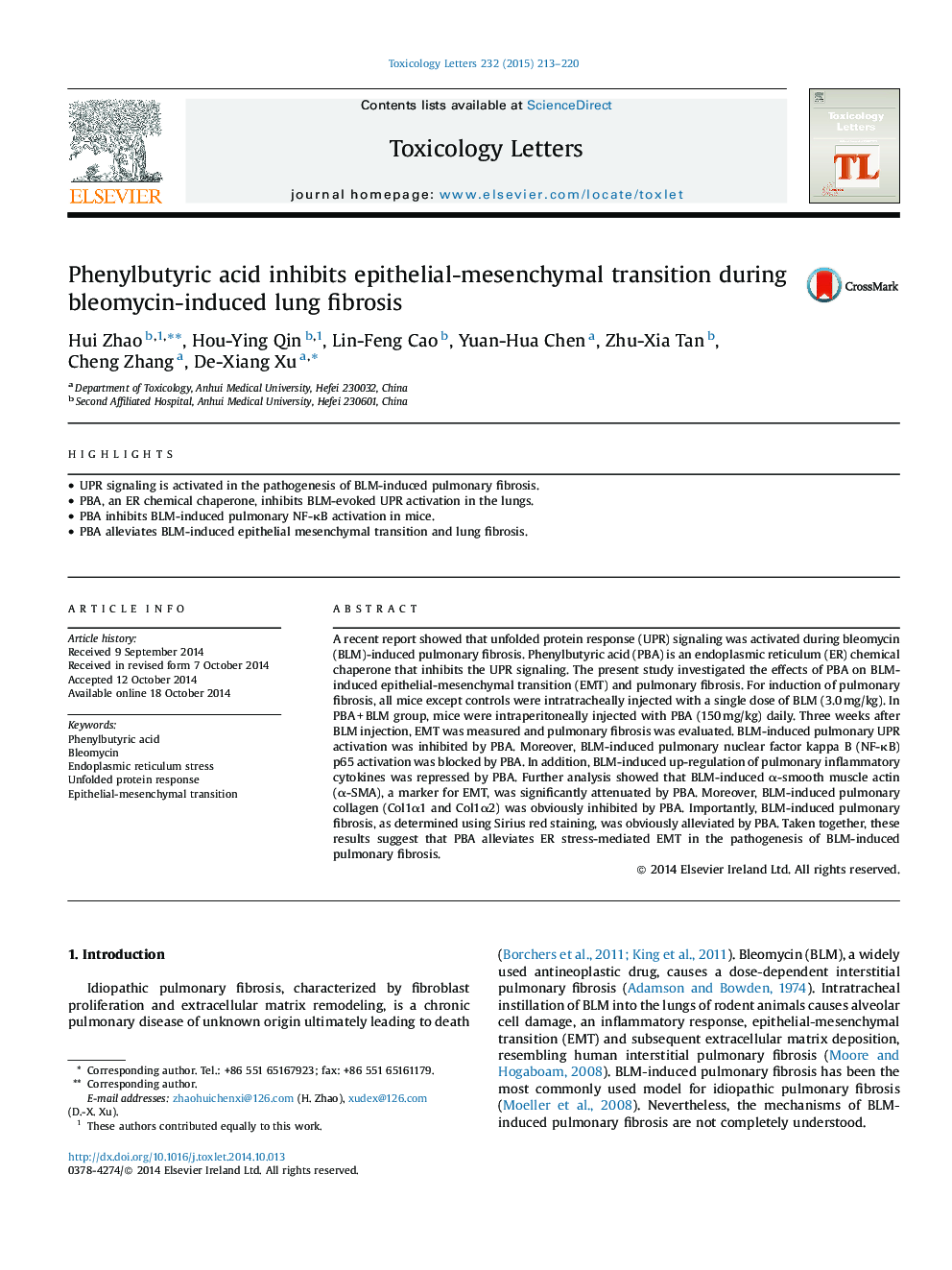| Article ID | Journal | Published Year | Pages | File Type |
|---|---|---|---|---|
| 5860057 | Toxicology Letters | 2015 | 8 Pages |
Abstract
A recent report showed that unfolded protein response (UPR) signaling was activated during bleomycin (BLM)-induced pulmonary fibrosis. Phenylbutyric acid (PBA) is an endoplasmic reticulum (ER) chemical chaperone that inhibits the UPR signaling. The present study investigated the effects of PBA on BLM-induced epithelial-mesenchymal transition (EMT) and pulmonary fibrosis. For induction of pulmonary fibrosis, all mice except controls were intratracheally injected with a single dose of BLM (3.0 mg/kg). In PBA + BLM group, mice were intraperitoneally injected with PBA (150 mg/kg) daily. Three weeks after BLM injection, EMT was measured and pulmonary fibrosis was evaluated. BLM-induced pulmonary UPR activation was inhibited by PBA. Moreover, BLM-induced pulmonary nuclear factor kappa B (NF-κB) p65 activation was blocked by PBA. In addition, BLM-induced up-regulation of pulmonary inflammatory cytokines was repressed by PBA. Further analysis showed that BLM-induced α-smooth muscle actin (α-SMA), a marker for EMT, was significantly attenuated by PBA. Moreover, BLM-induced pulmonary collagen (Col1α1 and Col1α2) was obviously inhibited by PBA. Importantly, BLM-induced pulmonary fibrosis, as determined using Sirius red staining, was obviously alleviated by PBA. Taken together, these results suggest that PBA alleviates ER stress-mediated EMT in the pathogenesis of BLM-induced pulmonary fibrosis.
Keywords
Related Topics
Life Sciences
Environmental Science
Health, Toxicology and Mutagenesis
Authors
Hui Zhao, Hou-Ying Qin, Lin-Feng Cao, Yuan-Hua Chen, Zhu-Xia Tan, Cheng Zhang, De-Xiang Xu,
